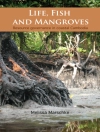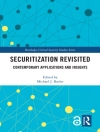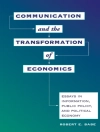Before Romantic <i>genius</i>, there was<i> ingenuity</i>. Early modern ingenuity defined every person—not just exceptional individuals—as having their own attributes and talents, stemming from an “inborn nature” that included many qualities, not just intelligence. Through ingenuity and its family of related terms, early moderns sought to understand and appreciate differences between peoples, places, and things in an attempt to classify their ingenuities and assign professions that were best suited to one’s abilities. <i>Logodaedalus</i>, a prehistory of <i>genius</i>, explores the various ways this language of ingenuity was defined, used, and manipulated between 1470 and 1750. By analyzing printed dictionaries and other lexical works across a range of languages—Latin, Italian, Spanish, French, English, German, and Dutch—the authors reveal the ways in which significant words produced meaning in history and found expression in natural philosophy, medicine, natural history, mathematics, mechanics, poetics, and artistic theory.
عن المؤلف
<b>Alexander Marr (Author) </b><br> <b>Alexander Marr</b> is professor of the history of early modern art at the University of Cambridge and a fellow and dean of disciple of Trinity Hall. He is the author of <i>Rubens’s Spirit: From Ingenuity to Genius</i> and coauthor of <i>Logodaedalus: Word Histories of Ingenuity in Early Modern Europe</i>.<br><br><b>Raphaële Garrod (Author) </b><br> <b>Raphaële Garrod</b> is associate professor in early modern French at the University of Oxford and a fellow of Magdalen College. She is the author of <i>Cosmographical Novelties: Dialectic and Discovery in French Renaissance Prose.</i><br><br><b>José Ramón Marcaida (Author) </b><br> <b>José Ramón Marcaida</b> is lecturer in art history at the University of St Andrews, where he works on the intersections of art and science in the early modern Hispanic world. He is the author of <i>Arte y ciencia en el Barroco español. </i><i>Historia natural, coleccionismo y cultura visual</i> and coauthor of <i>Logodaedalus: Word Histories of Ingenuity in Early Modern Europe</i>.<br><br><b>Richard J. Oosterhoff (Author) </b><br> <b>Richard J. Oosterhoff </b>is lecturer in early modern history at the University of Edinburgh. He is the author of <i>Making Mathematical Culture: University and Print in the Circle of Lefèvre d’Étaples</i> and coauthor of <i>Logodaedalus: Word Histories of Ingenuity in Early Modern Europe</i>.<br><br>












